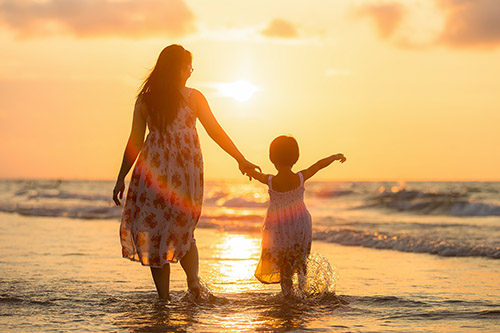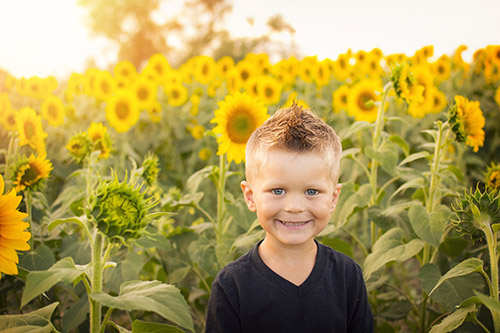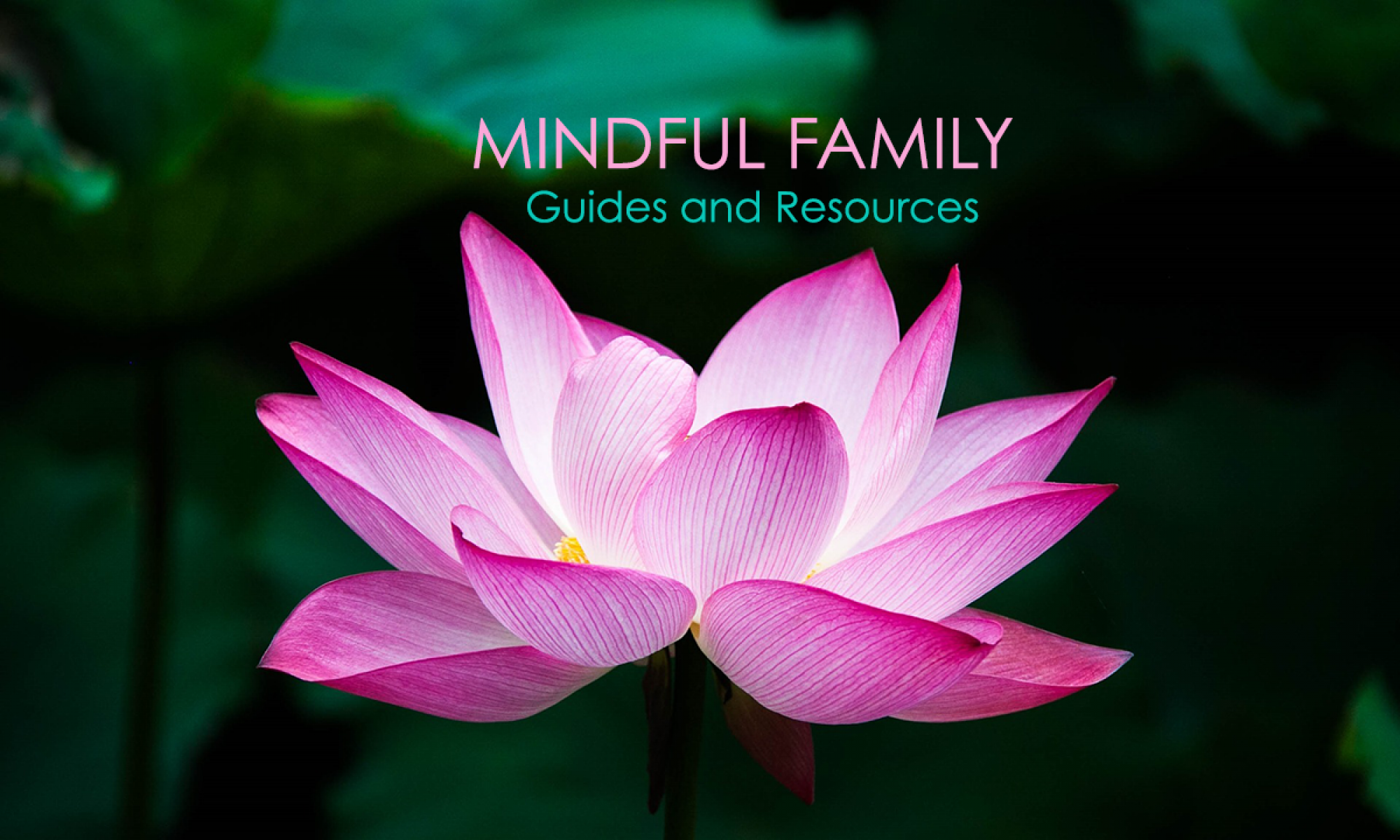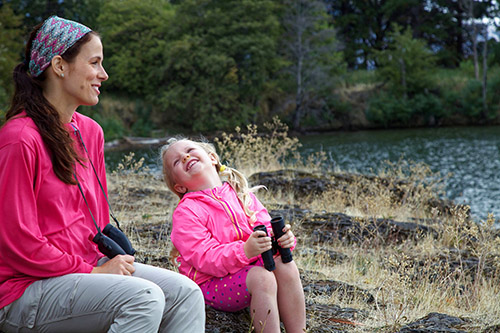By Megan Durrant and Sarah Hillsdon
Mindfulness has been gaining traction as a way of improving individual well-being, from health to happiness and resilience (Suttie, 2016). Mindfulness can be defined as the awareness that emerges through paying attention, on purpose, in the present moment, and nonjudgmentally to the unfolding experience moment by moment (Duncan, Coatsworth & Greenberg, 2009). Parenting can be a very challenging task and one that takes a lot of commitment and responsibility. Being mindful as a parent is of utmost importance and can help reduce the stressors that accompany parenting (Meppelink, Bruin, Wanders-Mulder, Vennik, & Bögels, 2016). When parents become stressed that stress becomes contagious; children know when their parents are tense and overwhelmed (Garey, 2018). Data shows that the greatest source of childhood and adolescent stress is not school work, extracurricular activities, or peer pressure, but parental stress. That being said, being a good parent also means learning to manage your own stress and mindfulness activities are a great way to facilitate this.

Mindful parenting has been described as a fundamental parenting skill or practice and it has been proposed that fostering everyday mindfulness in the context of parenting and parent training is one avenue for improving the effectiveness of parenting interventions (Duncan et al., 2009). Understanding your preschooler’s development and filling your toolbox with positive parenting skills will go a long way in resolving conflicts with your young child. As children grow into early childhood, their world will begin to open up as they become more independent and begin to focus more on adults both in and outside of the family (Perry, Hockenberry, Lowdermilk, & Wilson, 2017).
Mindful Parenting Experience
Incorporating mindful awareness into parenting interactions can allow parents to stop and fundamentally shift their awareness in order to view their present-moment parenting experience as well as attend to their child’s needs, while exercising self-regulation and wise choice in their actions (Duncan et al., 2009). It can also help that parents know that many different factors such as temperament, brain development, physical and intellectual abilities, and skill acquisition underlie much of a child’s behavior in these early years. Even the most delightful child can misbehave, and this can be frustrating for parents to deal with. Duncan et al.’s (2009) model of mindful parenting suggests that parents who can remain aware and accepting of their child’s needs through using mindfulness practices can create a family context that allows for more enduring satisfaction and enjoyment in the parent–child relationship.
When parents bring the practices of mindful parenting to parent–child interactions, they can cultivate an enhanced capacity for parenting calmly, with greater consistency, and in greater accordance with their goals and values, while engendering a warm and nurturing affective tenor in the parent–child relationship (Duncan et al., 2009). Challenging moments with young children can cause parents to snap or lose their temper and this is a reminder of how mindfulness can be such a valuable tool in parenting. When it comes to parenting mindfully, a lot of the work is about learning to make peace with our imperfections. Instead of beating yourself up, if you are able to make peace with your imperfections and begin to regulate your emotional state, you can be calmer and more present for your kids and cultivate some self-compassion (Garey, 2018).

It is easy to allow worry to take you away from the present. Duncan et al. (2009) suggest parents bring a present-moment awareness to their parenting that includes listening with full attention, bringing emotional awareness and nonjudgmental acceptance to their parenting interactions, and practicing self-regulation and compassion in their parenting relationships. Not imagining the worst helps parents to be more effective at dealing with today. Lechner (2018) describes worrying as being similar to paying interest on a loan that you haven’t been approved for.
Mindfulness and the Breath
One technique to help stay grounded in the present moment is to practice deep breathing (Lechner, 2018). Three rounds of slow inhalation and exhalation can calm the fight or flight response and will help you to feel in control of your emotions rather than letting your emotions and worry control you (Lechner, 2018). There’s science to show that taking a deep breath and staying calm when your children are pushing you to the edge actually causes positive changes in the brain (Garey, 2018). Research shows when you are able to recognize chaos in a non-anxious or fearful way, but just name it, people can actually turn the volume down on the amygdala, which is the fear circuit of the brain, and bring more activity to the prefrontal cortex, so we can be more aware of what’s happening right now in the present (Garey, 2018).

Start the Day Off Mindfully
A mindful family works together as a team and as a parent, you are not controlling the outcome, but you are guiding your team (Lechner, 2018). Another helpful resource is to make a concerted effort to slow things down. By slowing things down, stepping back and observing your own reactions, you are given a new perspective to effectively restructure your family’s routine, think of your busy morning routine rushing to get ready before school (Garey, 2018). Mindful mornings may be less efficient, but they’re more pleasurable as you will start with a happy mood instead of all this stress and rushing. Garey (2018) suggests efforts like waking up earlier and allowing your child to pick out their own clothes if this is what they insist. If you’re five minutes late to preschool it doesn’t change anything. What changes things is the frustration and stress that builds up causing everything to unravel (Garey, 2018).

Research by Suttie (2016) showed that parents who reported more mindful parenting engaged in more positive and less negative parenting behavior, which was then linked to more positive behavior in their kids—meaning less anxiety, depression, and acting out. It seems there is no one right way to parent mindfully but happily, there are many right ways. Sometimes it’s as simple as practicing paying full attention to your kids, with openness and compassion, and maybe that’s enough at any moment (Garey, 2018).

Mindful Breathing for Parents Video
Video created by
Megan Durrant and Sarah Hillsdon
2 mina, November 2018 in ShowMe
Mindful Parent Resources
Mindfulness Exercises

Mindfulness Exercises is a website that has access to more than 1500 mindfulness activities and exercises that are free. The website strives to share the best evidence based mindfulness exercises with people all around the world. The website is complete with worksheets, videos, ebooks, mindfulness coaching and training as well as a 100-day mindfulness challenge.
URL: https://mindfulnessexercises.com
Child Mind

The Child Mind Institute aims to help children and their families who are struggling with mental health and learning disorders and provides information that will empower families and communities to get help in the areas of mental health and learning disorders. One aspect of the website includes information on mindfulness techniques for parents that can take stress and anxiety out of raising kids. This website also includes information for families and educators along with their research in this area.
URL: https://childmind.org/article/mindful-parenting-2/
Mindfulness and Parenting TED talk

This TED talk by Mary Ann Christie Burnside, a developmental psychologist is on the
topic of Mindfulness and Parenting. The speaker is a developmental psychologist who specializes in relational health and mindfulness education. She also offers programs such as group sessions in schools, workplaces and communities such as mindfulness retreats for adults and mindfulness training.
URL: https://www.youtube.com/watch?v=5KfD9pElmA8
Vancouver Coastal Health Parenting Resources

Vancouver Coastal Health has a parenting resources page which includes information
such as sleep, play, siblings and even getting ready for school. This page shows how to build healthy relationships with your preschooler – specifically how to foster strong and loving relationships and how to approach challenging behaviors. Information such as immunizations, allergies, speech and language and staying healthy are also included on this website.
URL: http://parenting.vch.ca/preschoolers/parenting-your-preschooler/
Child Development Institute

The Child Development Institute provides information to parents related to child development, psychology, health, parenting and family activities. This website connects parents with professional experts and other useful websites. The goal of the Institute is to promote parent-child relationships by encouraging families to spend time together which in turn fosters and promotes communication including a page on mindful parenting.
URL: https://childdevelopmentinfo.com/family-building/mindful-parenting/
Healthy Families BC

Healthy Families BC Aims to improve the health and wellbeing of British Columbians. Healthy families BC focuses on four main areas including healthy eating, healthy lifestyles, resources for parents and fostering healthy communication. There is a specific area dedicated to preschool aged children where they have many articles and information surrounding healthy eating, physical activity, safety, development and parenting.
URL: https://www.healthyfamiliesbc.ca/
The Mindful Parent

The Mindful Parent is an organization that strives to share information with parents and caregivers on how to mindfully attend to children. They strive to demonstrate to parents and caregivers how to be physically present with their children as well how to enhance their connection with children in hopes to create better and happier parents. This website also is a platform for parents to share dialogue surrounding mindfulness and parenting experiences.
URL: http://www.themindfulparent.org/
Mindfulness for Parents – Daily Meditation #1

This resource can be found on YouTube and is a daily breathing meditation video. This is a shortened version of the material that can be found on the mindfulness for parents online course offered by the authors. This video demonstrates meditations and guided imagery that can help parents become mindful and balanced.
URL: https://www.youtube.com/watch?v=8iQA7Kpz3w4
Parenting Science

Parenting Science was created to provide parents with evidence-based information about parenting and child development. This website was created by Gwen Dewar who received her Ph.D. from the University of Michigan where she trained in behavioral ecology and Comparative Psychology. This website includes information surrounding the preschool aged child including cognitive development, learning, play, self control and sleep. It also includes information surrounding parenting including mindfulness, attachment and parenting styles.
URL: https://www.parentingscience.com/
References
Duncan, L. G., Coatsworth, J. D., & Greenberg, M. T. (2009). A model of mindful parenting: implications for parent-child relationships and prevention research. Clinical child and family psychology review, 12(3), 255-70.
Garey, J. (2018). Practice Mindful Parenting | Mindfulness Techniques | Child Mind Institute. [online] Child Mind Institute. Available at: https://childmind.org/article/mindful-parenting-2/ https://childmind.org/article/mindful-parenting-2/
Lechner, T. (2018). Mindful Parenting: How to Raise Kind and Conscious Kids. [online] The Chopra Center. Available at: https://chopra.com/articles/mindful-parenting-how-to-raise-kind-and-conscious-kids
Meppelink, R., Bruin, E. I., Wanders-Mulder, F. H., Vennik, C. J., & Bögels, S. M. (2016). Mindful Parenting Training in Child Psychiatric Settings: Heightened Parental Mindfulness Reduces Parents’ and Children’s Psychopathology. Mindfulness, 7(3), 680-689. doi:10.1007/s12671-016-0504-1
Perry, S., Hockenberry, M., Lowdermilk, D. & Wilson, D. (2017). Maternal Child nursing in Canada. 2nd edition. Toronto: Elsevier (Mosby).
Suttie, J. (2016). How Mindful Parenting Differs from Just Being Mindful. [online] Mindful. Available at: https://www.mindful.org/mindful-parenting-may-keep-kids-trouble/


